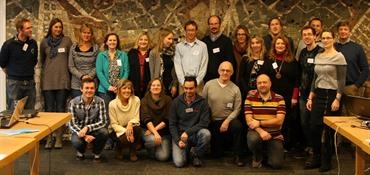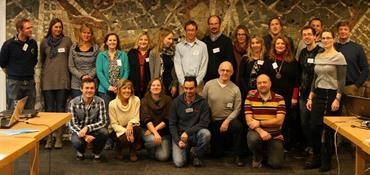From otolith archives to networks of biochronologies
Workshop held to study growth-increment chronologies in marine fish At its meeting last week, the first Workshop on Growth-increment Chronologies in Marine Fish: climate-ecosystem interactions in the North Atlantic (WKGIC) identified several otolith archives that could be used to generate continuous centennial-length biochronologies, the dating of biological events, to add to the several such projects already underway.
At its meeting last week, the first Workshop on Growth-increment Chronologies in Marine Fish: climate-ecosystem interactions in the North Atlantic (WKGIC) identified several otolith archives that could be used to generate continuous centennial-length biochronologies, the dating of biological events, to add to the several such projects already underway.
These archives, found in European and North American fisheries laboratories, hold collections of thousands of otoliths, bivalve shells, and scales – all used for the age determination of fish - stretching back over the past several decades.
Recent advances in digital imaging combined with techniques developed by tree-ring scientists (counting otolith rings being a similar practice) provide new avenues to extract additional information from these calcified structures and generate annually-resolved (one value per year), multidecadal chronologies of population-level growth anomalies.
The resulting biochronologies are precisely ordered according to date and can be directly compared to instrumental climate records, chronologies of other regions or species, or time-series of other biological phenomena. In this way, they may be used to reconstruct historical ranges of environmental variability, identify climatic drivers of species growth, establish linkages within and amongst species, and generate ecosystem-level indicators.
Next for WKGIC is to hold a hands-on training workshop in 2015 with the goal of developing a biochronology and in so doing, provide participants the skills with which to apply these techniques to their otolith collections. The aim is to increase the use of these techniques, and over the long-term, develop networks of biochronologies for integrative analyses of ecosystem functioning and relationships to long-term climate variability and fishing pressure.
The two-day workshop was held at the Johann Heinrich von Thünen Institute in Hamburg, Germany, and chaired by Bryan Black (USA) and Christoph Stransky (Germany) with 23 participants from 11 different countries attending.
News archive courtesy of the International Council for the Exploration of the Sea (Simon Cooper).









